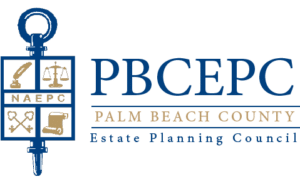
Study after study confirms that tax savings are mainly a secondary donor goal for charitable giving. More importantly, in a gifting decision, the donor believes that the gift will have the desired impact and that the beneficiary charity’s mission is a good one worthy of support. Still, taxes and notably tax savings should be considered when planning charitable gifts. The good news is that the current federal tax proposals offer donors the opportunity for increased tax savings and thereby the chance to reduce the net cost of their giving.
Lately, our attention has been focused on the proposed changes to the U.S. Tax system. As a result, we can expect tax rates for ordinary income, capital gains, corporate and estate taxes to increase substantially this year.
Few of us like the idea of paying more in taxes, and most are keen to find ways to reduce our tax burden. Fortunately for the philanthropically-minded and the charities they support, deductions for charitable gifts to qualified non-profits are not going away. Simultaneously, charitable deductions offer donors an effective way to reduce taxes and do good deeds. Overall, rising tax rates make charitable giving more attractive financially. Following are a few examples:
How does a rise in the ordinary income tax increase the tax savings produced by a charitable donation of $100,000 in cash?
Tax Bracket Charitable Gift Amount Tax-Savings Net Cost-of-Gift
37% $100,000 $37,000 $63,000
39.6% $100,000 $39,600 $60,400
In the example above, the donor reduces the net cost-of-gift by an additional $2,600 thanks to the higher tax bracket. The good news is that any increase in an individual’s marginal tax bracket will generate an equal increase in the charitable deduction available to them.
The proposal to increase the capital gains tax on assets held over 1-year is significant. But, how does a rise in the capital gains tax increase the tax savings produced by a charitable donation of $100,000 in appreciated assets with a zero tax basis?
Tax Bracket Charitable Gift Amount Tax-Savings Net Cost-of-Gift
20% $100,000 $20,000 $80,000
28% $100,000 $28,000 $72,000
In the example above, thanks to the combination of ordinary income and capital gains tax savings, the donor reduces the net cost of the gift by an additional $8,000 thanks to the higher capital gains tax bracket.
Perhaps the most significant tax proposal impacts the estate taxes. For example, how does eliminating the stepped-up basis for inherited appreciated assets increase the tax savings on a charitable donation of $100,000 in appreciated assets with a zero tax basis from one’s estate?
Step-up Basis Charitable Gift Amount Tax-Savings Net Cost-of-Gift
Yes $100,000 $40,000 $60,000
No $100,000 $56,800 $43,200
In the example above, thanks to the combination of estate tax savings and the loss of the stepped-up basis, the donor reduces the net-cost-of gift by an additional $16,800.
Regardless of what one thinks about the proposed tax increases, it is clear that they can enhance the value of the charitable deduction as a tax management strategy. Donors may incorporate sophisticated charitable gift techniques such as the Charitable Lead Trust to maximize benefits. In addition, professional advisors should be consulted now about how the new tax law changes may impact one’s tax and estate planning. You may save thousands of dollars by carefully planning your next gift.
This article is for educational purposes only. Legal and tax advice should be sought from qualified professionals.
Irv Geffen is the Senior Vice President of the MorseLife Foundation. The Foundation supports the charitable work of the MorseLife Health System which provides comprehensive living and healthcare solutions for seniors. Irv has worked with non-profits for over 30 years designing charitable gifts to accomplish the donor’s charitable, personal and financial goals in coordination with their professional advisors.
